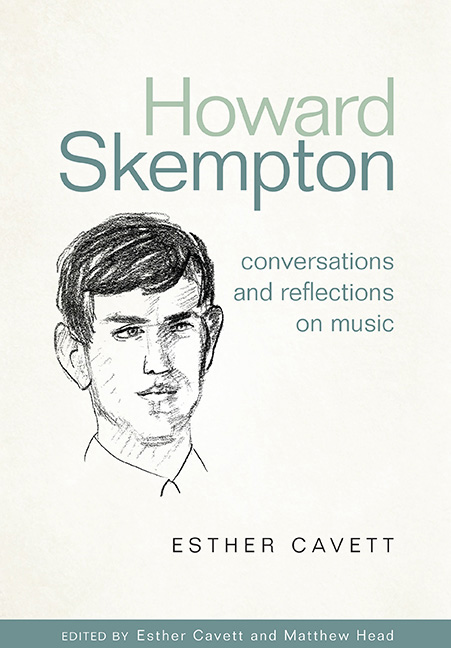Book contents
- Frontmatter
- Dedication
- Contents
- List of illustrations
- List of contributors
- Preface
- Roles and acknowledgements
- Introduction
- Editorial conventions
- Timeline
- Chapter One Histories
- Chapter Two Influences
- Chapter Three Pattern and shape
- Interval: Previously unpublished manuscripts
- Chapter Four Influencing
- Conversation Four: On teaching composition
- Lessons were “magical”: Skempton's composition students
- Reflection Four, “Not a lot spoken, but a lot said”: Skempton as teacher and composer
- Chapter Five Performing
- Chapter Six Narrative and closure
- Appendix One Authorized worklist
- Appendix Two Discography of first commercially distributed recordings
- Select bibliography
- Index
Lessons were “magical”: Skempton's composition students
from Chapter Four - Influencing
Published online by Cambridge University Press: 10 September 2019
- Frontmatter
- Dedication
- Contents
- List of illustrations
- List of contributors
- Preface
- Roles and acknowledgements
- Introduction
- Editorial conventions
- Timeline
- Chapter One Histories
- Chapter Two Influences
- Chapter Three Pattern and shape
- Interval: Previously unpublished manuscripts
- Chapter Four Influencing
- Conversation Four: On teaching composition
- Lessons were “magical”: Skempton's composition students
- Reflection Four, “Not a lot spoken, but a lot said”: Skempton as teacher and composer
- Chapter Five Performing
- Chapter Six Narrative and closure
- Appendix One Authorized worklist
- Appendix Two Discography of first commercially distributed recordings
- Select bibliography
- Index
Summary
CONVERSATION WITH LUKE DEANE 16 OCTOBER, 2016, BY PHONE
EC: Thanks for calling me Luke. Could I ask you just a few questions, before you read the transcription of Howard's conversation with me on “teaching composition,” rather than having you influenced by what he says there, though you will be interested to read it later not least because Howard mentions you several times?
LD: That sounds great. It is really quite confusing to talk about composition teaching. You don't really know what it is exactly, and all the while you have this feeling of learning and of developing, but you couldn't really put your finger on exactly what it is. So, go ahead.
EC: Well, this maybe sounds a bit corny, but could I ask if there are any particular moments you recall from your meetings with him that changed your perception of what it is to be a composer? Could you give me a particular instance of where you brought something to him, and with just a word or a comment, or the lifting of an eyebrow, he made a difference?
LD: There are loads of those. One of my favourite examples was in the very first lesson we ever had. I brought him one of the first pieces I've ever written down, and up went the music on the piano, five or six pages, and really I wanted to ask about how you decide in what order things needed to happen. Quite vague questions. He said to me in that first lesson “you have got to try and think about your music outside of time.” I think I'm quoting him right. I went away a bit mind-blown, thinking, “Wow what does he mean?” Now I understand he means that the material doesn't necessarily have an order when you first encounter it. It is not necessarily organized at that stage. You have an initial encounter with it and then later you might organize it differently. So, I still think about that today, and what that means. It was a mind-boggling experience to hear him say that when I'd first arrived to study with him.
- Type
- Chapter
- Information
- Howard Skempton: Conversations and Reflections on Music , pp. 144 - 148Publisher: Boydell & BrewerPrint publication year: 2019

